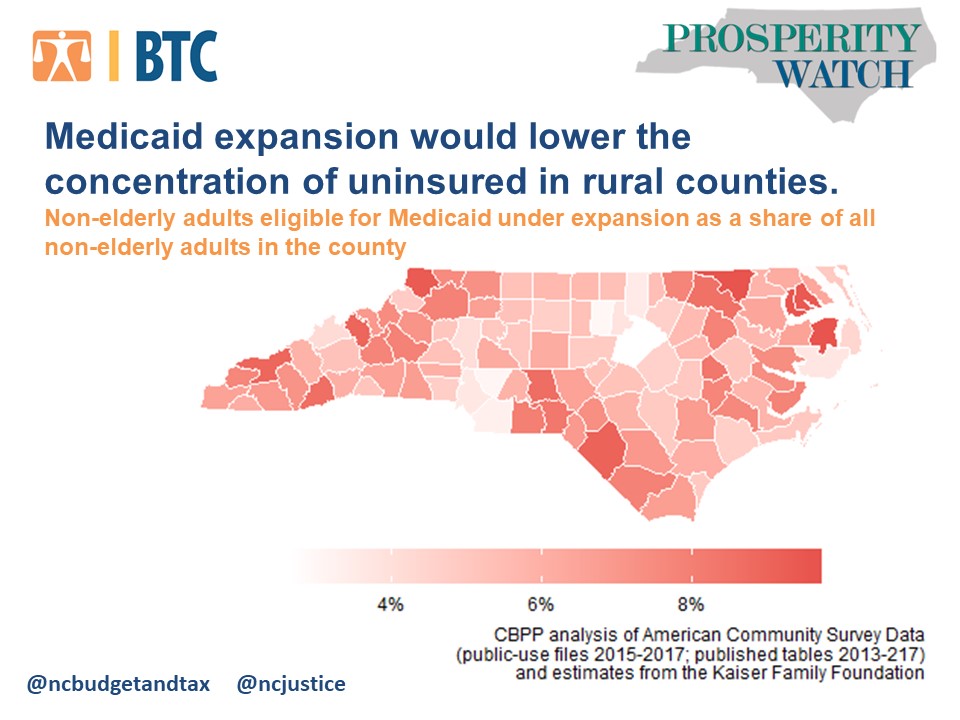Estimates show that densely populated counties like Wake and Mecklenburg would see the largest gross coverage gains under Medicaid expansion. However, expanding Medicaid to cover adults ages 19-64 with incomes below 138 percent of the poverty level would disproportionately benefit smaller rural counties. Given that rural communities generally suffer higher uninsured rates and have less dense populations, many small, rural North Carolina counties would see a greater share of their population gain eligibility for affordable health insurance coverage if lawmakers close the coverage gap.
The figure below illustrates that Medicaid expansion would make a greater share of uninsured adults in rural North Carolina counties newly eligible for health coverage.

In fact, the 10 counties with the largest share of nonelderly adults who would become eligible for Medicaid under expansion include Tyrrell, Northampton, Chowan, Perquimans, Ashe, Robeson, Yancey, Swain, Montgomery, and Transylvania.
Expanding Medicaid in North Carolina would not only help hundreds of thousands of people become healthier, but it would bring major economic benefits for rural communities. Studies have shown that Medicaid expansion helps keep rural hospitals afloat, and in North Carolina six rural hospitals have closed their doors since 2013—including one in Washington County just this month. In many of these same counties, employment growth has not rebounded since the Great Recession. After all, when planning business locations and expansions, employers consider communities’ health outcomes. With large swaths of uninsured and declining numbers of hospitals, rural North Carolina faces roadblocks to recovery and realizing its economic potential without full Medicaid expansion.
 Justice Circle
Justice Circle